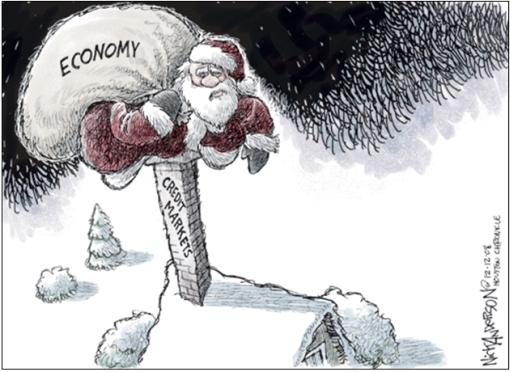"Little wonder investors are so complacent. Wall Street hit a new
record on Friday with all eyes on US Federal Reserve chief Jerome
Powell, who this week will be — guess what?
Cutting interest rates."

Four flashpoints that may unsettle booming stock markets in the coming year
In 2008, the financial system teetered on the brink of collapse. It
was a crisis triggered by a catastrophic debt build-up in America's
housing market that, once it burst, infected the US and the global
banking system.
Ultimately, the contagion and fear was contained.
But the underlying problems were never really addressed, let alone
solved. They were merely papered over with vast amounts of extra debt
created out of thin air.

Remarkably, central banks since then have managed to avoid yet
another debt-inspired meltdown by sending interest rates to zero and
then negative territory.
What they now most fear is another
financial market implosion that could spill over and cripple the real
economy. But as they've demonstrated time and again, they will stop at
nothing to avoid one.
How long can this state of suspended
animation continue, where supposedly free markets are so easily
manipulated? Investors appear to have become lulled into believing it
will continue indefinitely.
LEARN MORE
BUFFET IS UNSETTLED



/arc-anglerfish-tgam-prod-tgam.s3.amazonaws.com/public/IMTTVSC4D5HTRM3CZV6HNMMNEM.JPG)






